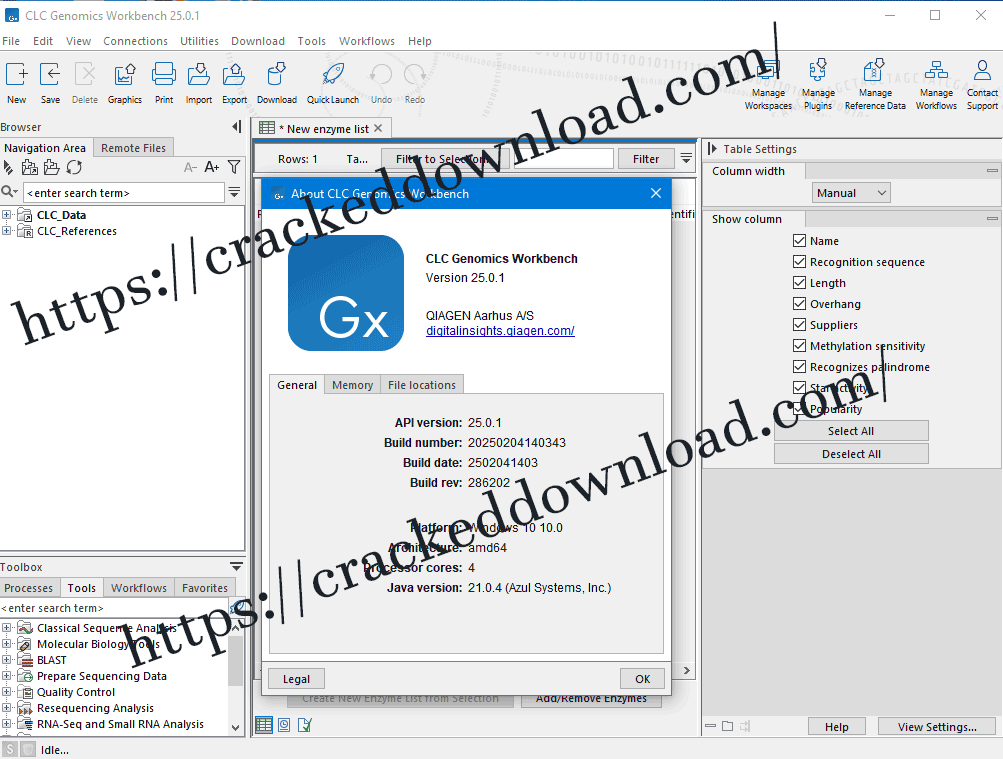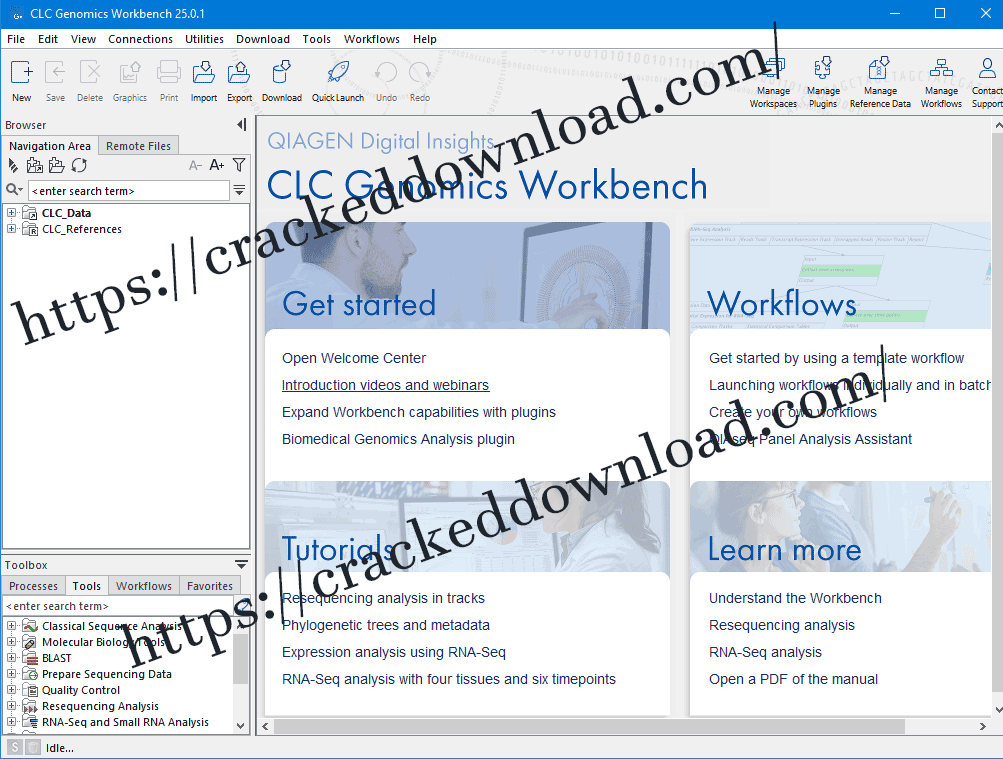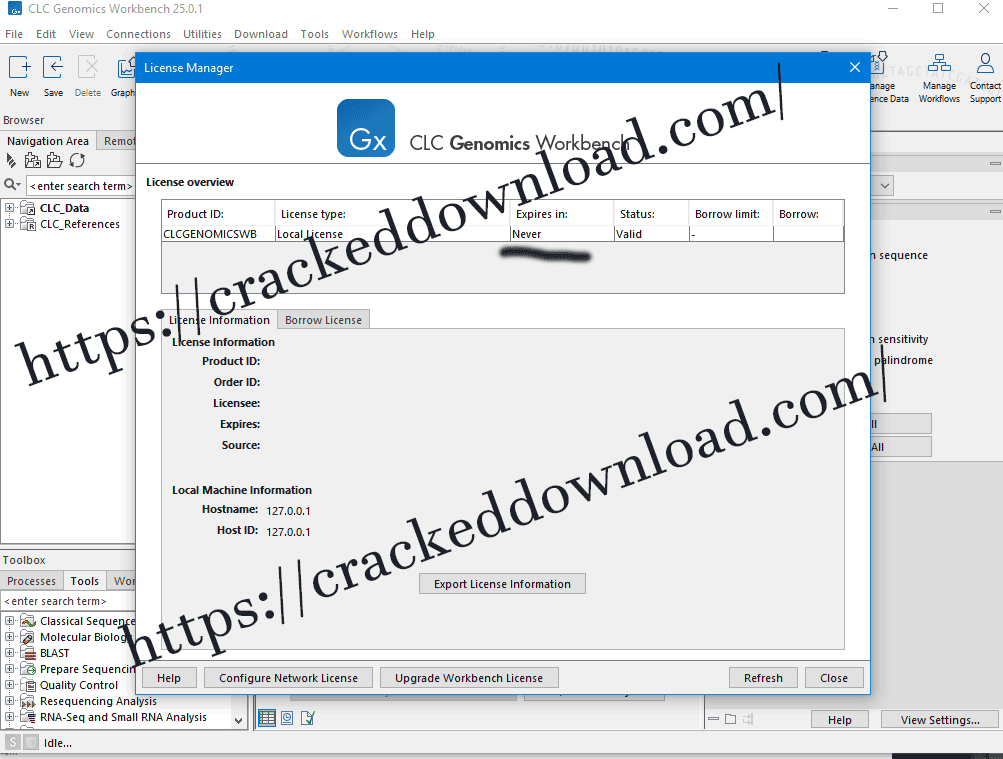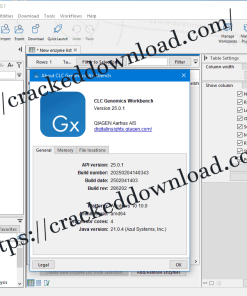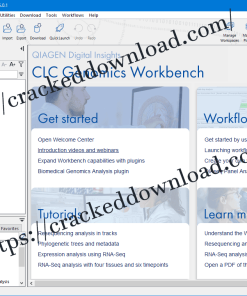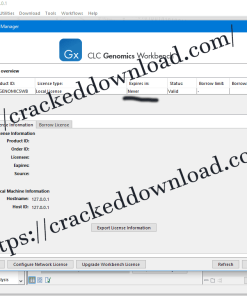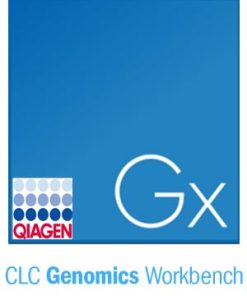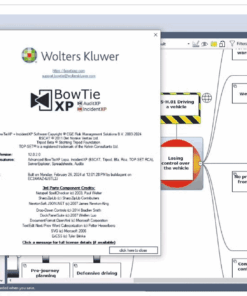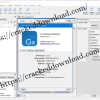CLC Genomics Workbench 25
€0.00
CLC Genomics Workbench 25 perpetual license unlimited download
CLC Genomics Workbench 2025 crack is a comprehensive bioinformatics software platform developed by QIAGEN Digital Insights (formerly part of CLC Bio). It is widely used for analyzing and interpreting next-generation sequencing (NGS) data,
CLC Genomics Workbench 25 perpetual license unlimited download CLC Genomics Workbench 2025 crack
CLC Genomics Workbench is a comprehensive bioinformatics software platform developed by QIAGEN Digital Insights (formerly part of CLC Bio). It is widely used for analyzing and interpreting next-generation sequencing (NGS) data, as well as other types of genomic and transcriptomic data. Version 25 of the CLC Genomics Workbench introduces several new features, enhancements, and improvements over previous versions, making it a powerful tool for researchers in genomics, transcriptomics, metagenomics, and related fields.
Below is an overview of the key features and functionalities of CLC Genomics Workbench 25:
Key Features of CLC Genomics Workbench 25 CLC Genomics Workbench 2025 crack
1. User-Friendly Interface
- The software provides an intuitive graphical user interface (GUI) that allows users to perform complex analyses without requiring extensive programming skills.
- Drag-and-drop functionality simplifies workflow creation and data management.
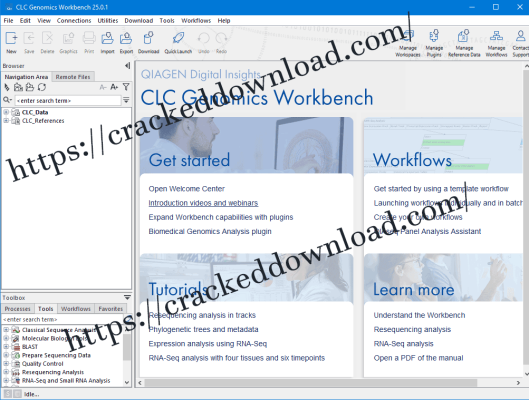
2. Support for NGS Data Analysis
- Comprehensive tools for processing raw sequencing data from platforms such as Illumina, PacBio, Oxford Nanopore, and others.
- Includes workflows for quality control (QC), read mapping, variant calling, RNA-seq analysis, and de novo assembly.
3. Variant Detection and Annotation
- Advanced algorithms for detecting single nucleotide variants (SNVs), insertions/deletions (indels), and structural variants.
- Integration with public databases (e.g., dbSNP, COSMIC) for variant annotation and interpretation.
- Support for somatic and germline variant calling in cancer research.
4. RNA-Seq Analysis
- Tools for differential expression analysis, gene fusion detection, and transcriptome assembly.
- Visualization of expression levels using heatmaps, PCA plots, and volcano plots.
- Compatibility with both bulk RNA-seq and single-cell RNA-seq datasets.
5. Microbiome and Metagenomics Analysis
- Taxonomic profiling and functional annotation of metagenomic samples.
- Support for 16S rRNA sequencing and whole-genome shotgun (WGS) metagenomics.
- Integration with tools like MetaPhlAn and HUMAnN for advanced microbiome studies.
6. Epigenetics and Methylation Analysis
- Tools for analyzing bisulfite sequencing data to identify DNA methylation patterns.
- Visualization of methylation levels across genomic regions.
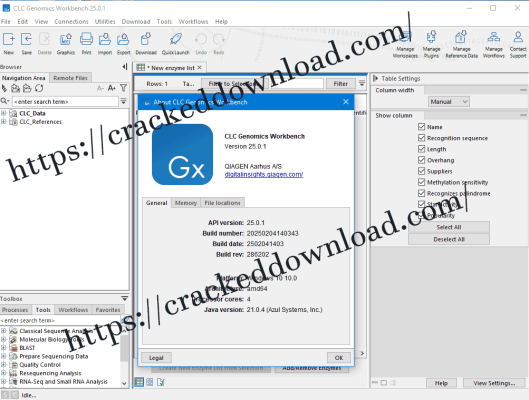
7. Integration with QIAGEN Knowledge Base
- Access to curated biological pathways, disease associations, and drug targets through QIAGEN’s Ingenuity Pathway Analysis (IPA).
- Enhanced interpretation of results by linking genomic findings to biological context.
8. Cloud and High-Performance Computing (HPC) Support
- Option to run analyses on local machines or scale up using cloud computing resources (e.g., AWS, Microsoft Azure).
- Support for distributed computing environments to handle large datasets efficiently.
9. Customizable Workflows
- Users can create custom pipelines tailored to their specific research needs.
- Pre-built workflows are available for common tasks, reducing setup time.
10. Data Visualization
- Interactive visualization tools for exploring results, including genome browsers, phylogenetic trees, and statistical plots.
- Export options for high-quality figures suitable for publication.
11. Collaboration and Sharing
- Built-in collaboration features allow teams to share data, workflows, and results securely.
- Integration with QIAGEN CLC Genomics Cloud Engine for centralized project management.
12. Compatibility and Updates
- Regular updates ensure compatibility with the latest sequencing technologies and file formats.
- Version 25 includes performance optimizations and bug fixes based on user feedback.
New Features in Version 25 CLC Genomics Workbench 2025 crack
While specific details about version 25 may vary depending on the release notes, some notable additions and improvements include:
- Enhanced AI/ML Algorithms: Improved accuracy in variant calling and functional prediction using machine learning models.
- Single-Cell Analysis Tools: Expanded support for single-cell RNA-seq and ATAC-seq data.
- Improved Visualization: New chart types and interactive dashboards for better data exploration.
- Faster Processing: Optimized algorithms for faster alignment, assembly, and downstream analysis.
- Expanded Database Support: Updated annotations and integration with additional public databases.
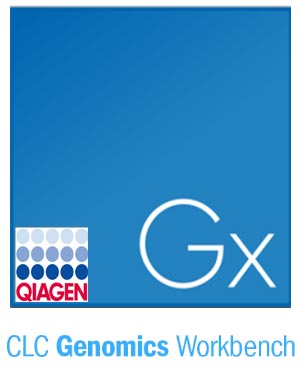
System Requirements
To run CLC Genomics Workbench 25 effectively, your system should meet the following minimum requirements:
- Operating System: Windows 10/11, macOS 10.15+, or Linux (Ubuntu, CentOS, etc.)
- Processor: Multi-core CPU (Intel i5/i7 or equivalent)
- RAM: Minimum 8 GB (16 GB or more recommended for large datasets)
- Storage: Sufficient disk space for input files, intermediate results, and output (SSD recommended for faster performance)
- Graphics: Modern GPU for optimal visualization performance
Use Cases
CLC Genomics Workbench 25 is suitable for a wide range of applications, including:
- Cancer genomics: Identifying mutations and biomarkers associated with tumors.
- Infectious disease research: Analyzing pathogen genomes and antimicrobial resistance.
- Agricultural genomics: Studying crop improvement and trait selection.
- Environmental studies: Investigating microbial communities in ecosystems.
Related products
Oil and Gas
Uncategorized
unlimited find
Cad/Cam
Uncategorized
Mathematical
Uncategorized
unlimited find
Science Research
Uncategorized
Uncategorized
Uncategorized
Uncategorized
Uncategorized
Uncategorized
Uncategorized
Science Research
Uncategorized
Simulation
engineering softwares
Uncategorized
Uncategorized
Uncategorized
Biomedical
Uncategorized
Uncategorized
Geology
Uncategorized
Cad/Cam
Uncategorized
Science Research
unlimited find
Uncategorized
unlimited find
Uncategorized
Uncategorized
Simulation
Science Research
chemistry software
engineering softwares
Uncategorized
Uncategorized
Mining Industry



